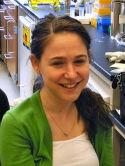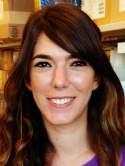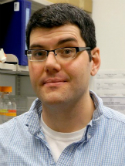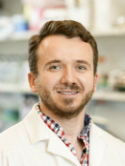A gene–environment-induced epigenetic program initiates tumorigenesis Journal Article
| Authors: | Alonso-Curbelo, D.; Ho, Y. J.; Burdziak, C.; Maag, J. L. V.; Morris, J. P. 4th; Chandwani, R.; Chen, H. A.; Tsanov, K. M.; Barriga, F. M.; Luan, W.; Tasdemir, N.; Livshits, G.; Azizi, E.; Chun, J.; Wilkinson, J. E.; Mazutis, L.; Leach, S. D.; Koche, R.; Pe’er, D.; Lowe, S. W. |
| Article Title: | A gene–environment-induced epigenetic program initiates tumorigenesis |
| Abstract: | Tissue damage increases the risk of cancer through poorly understood mechanisms1. In mouse models of pancreatic cancer, pancreatitis associated with tissue injury collaborates with activating mutations in the Kras oncogene to markedly accelerate the formation of early neoplastic lesions and, ultimately, adenocarcinoma2,3. Here, by integrating genomics, single-cell chromatin assays and spatiotemporally controlled functional perturbations in autochthonous mouse models, we show that the combination of Kras mutation and tissue damage promotes a unique chromatin state in the pancreatic epithelium that distinguishes neoplastic transformation from normal regeneration and is selected for throughout malignant evolution. This cancer-associated epigenetic state emerges within 48 hours of pancreatic injury, and involves an ‘acinar-to-neoplasia’ chromatin switch that contributes to the early dysregulation of genes that define human pancreatic cancer. Among the factors that are most rapidly activated after tissue damage in the pre-malignant pancreatic epithelium is the alarmin cytokine interleukin 33, which recapitulates the effects of injury in cooperating with mutant Kras to unleash the epigenetic remodelling program of early neoplasia and neoplastic transformation. Collectively, our study demonstrates how gene–environment interactions can rapidly produce gene-regulatory programs that dictate early neoplastic commitment, and provides a molecular framework for understanding the interplay between genetic and environmental cues in the initiation of cancer. © 2021, The Author(s), under exclusive licence to Springer Nature Limited. |
| Keywords: | controlled study; human tissue; gene mutation; nonhuman; pancreas cancer; animal cell; mouse; animal tissue; gene expression; animal experiment; animal model; protein; cohort analysis; risk factor; carcinogenesis; epigenetics; chromatin; genomics; gene control; oncogene k ras; tumor; health risk; tissue injury; single cell analysis; genotype environment interaction; detection method; pancreas injury; interleukin 33; cancer; human; male; female; priority journal; article; pancreas tissue; induced response |
| Journal Title: | Nature |
| Volume: | 590 |
| Issue: | 7847 |
| ISSN: | 0028-0836 |
| Publisher: | Nature Publishing Group |
| Date Published: | 2021-02-25 |
| Start Page: | 642 |
| End Page: | 648 |
| Language: | English |
| DOI: | 10.1038/s41586-020-03147-x |
| PUBMED: | 33536616 |
| PROVIDER: | scopus |
| PMCID: | PMC8482641 |
| DOI/URL: | |
| Notes: | Article -- Export Date: 1 April 2021 -- Source: Scopus |
Altmetric
Citation Impact
BMJ Impact Analytics
MSK Authors
Related MSK Work






















